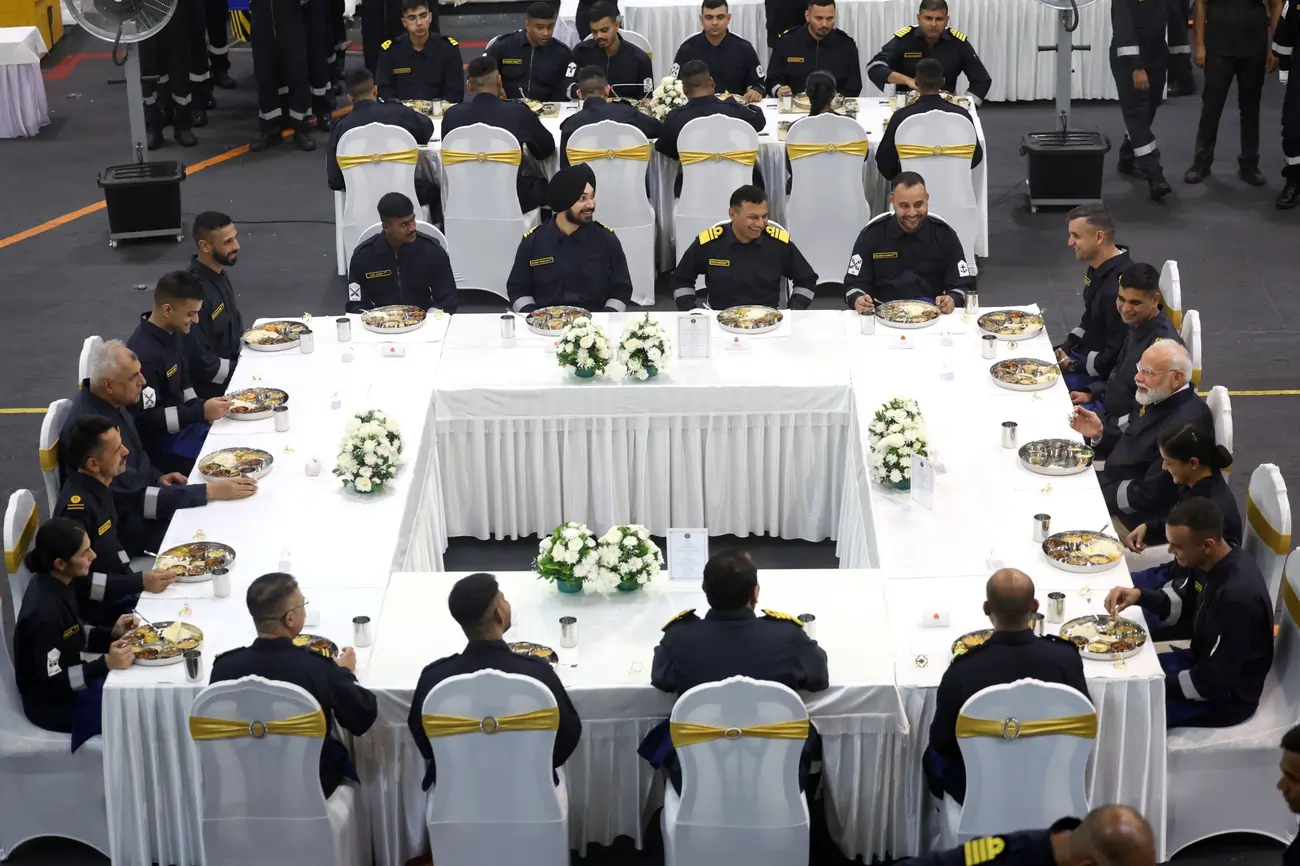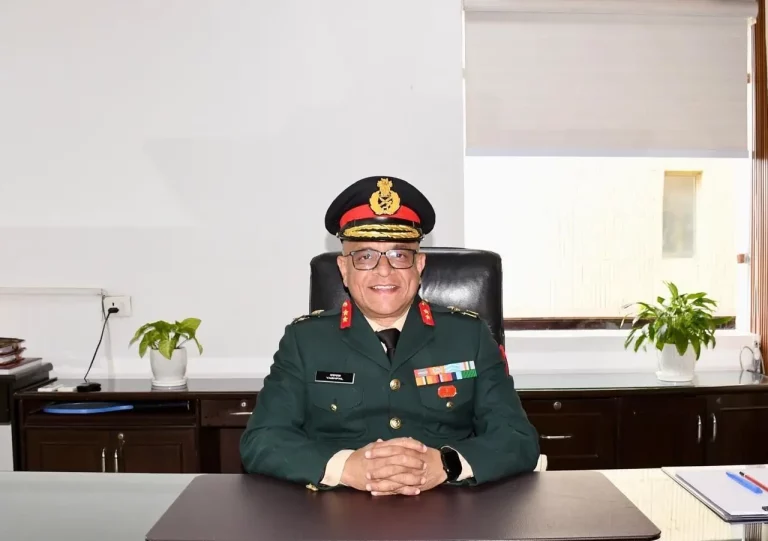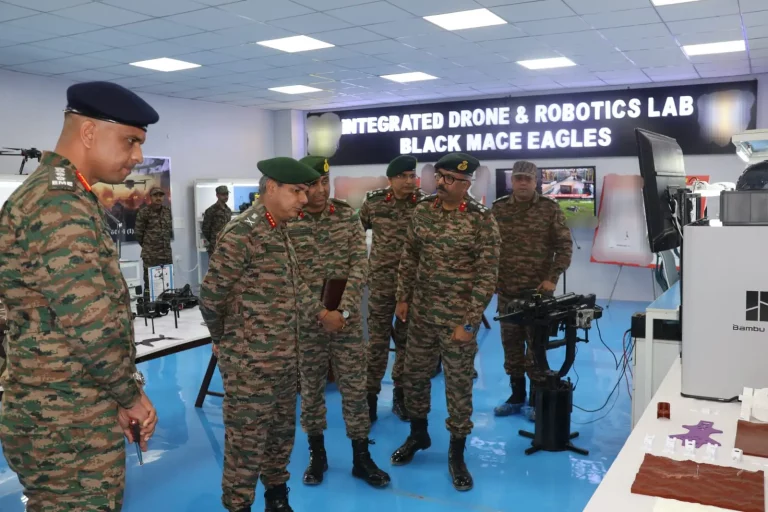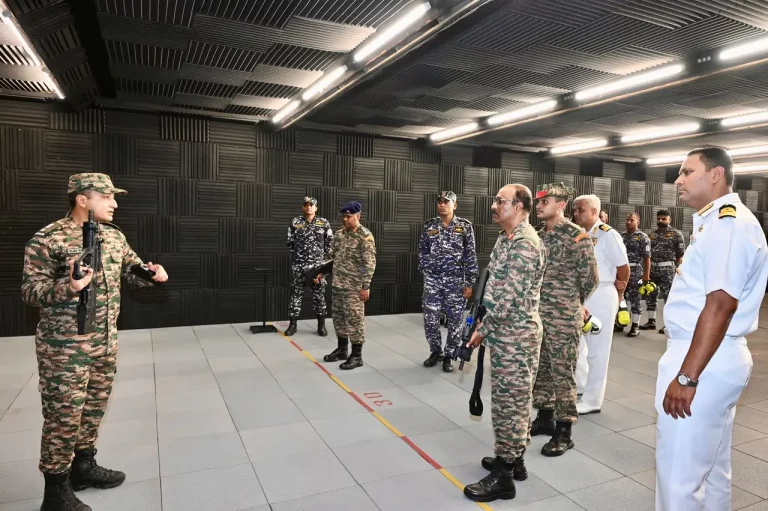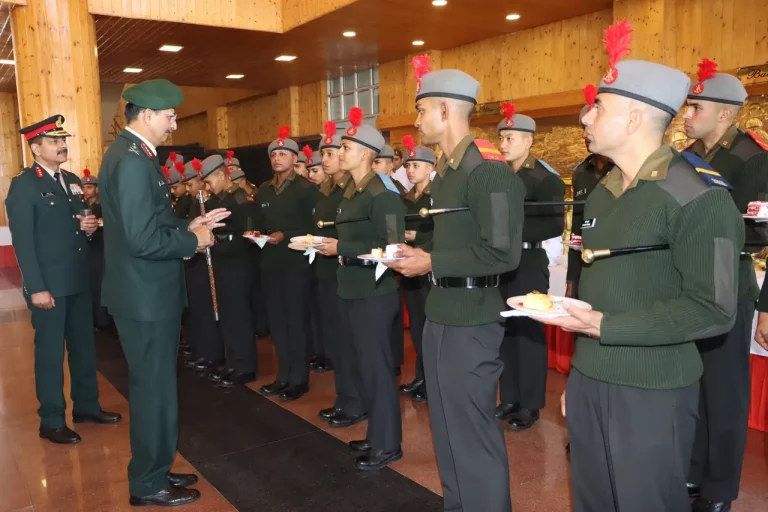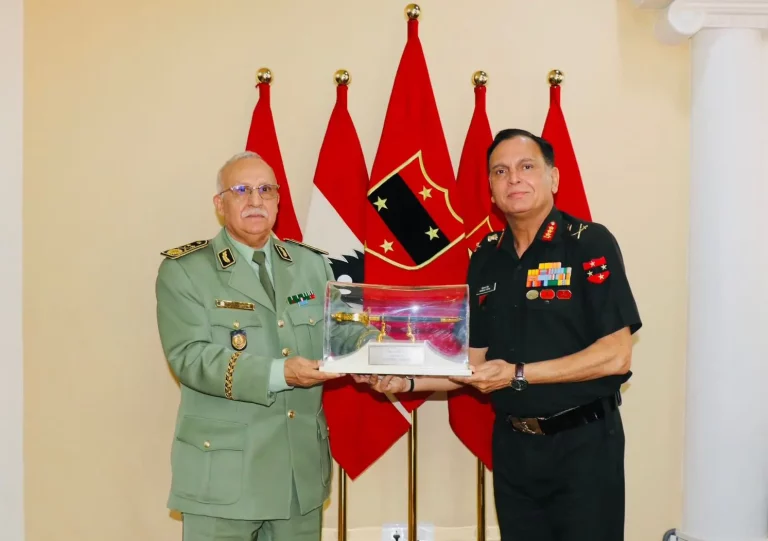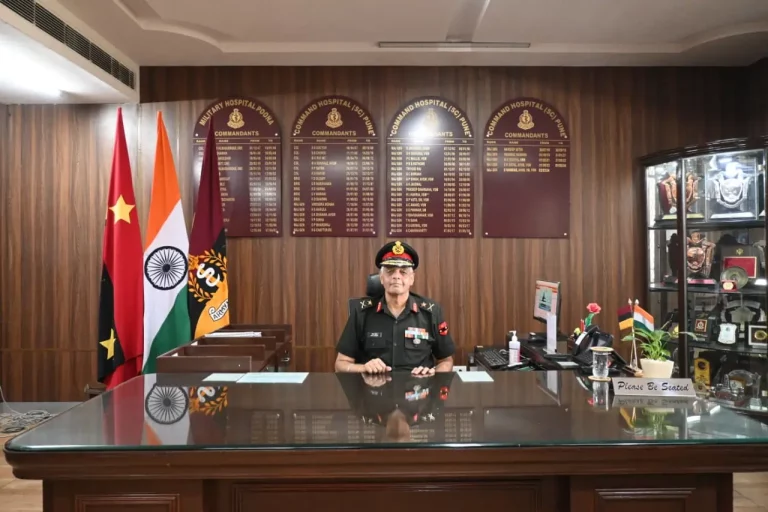On the evening of October 19, 2025, Prime Minister Narendra Modi took part in the cherished military tradition of Bara Khana aboard the indigenous aircraft carrier INS Vikrant, anchored off the coasts of Goa and Karwar. This ceremonial meal, emblematic of camaraderie within the Indian armed forces, marked the Prime Minister’s twelfth consecutive Diwali celebration with the nation’s troops. The event was brimming with patriotic fervor and a festive spirit, featuring a traditional Indian thali that mirrored the rich cultural heritage and disciplined hospitality of the Indian Navy.
The Bara Khana meal was a carefully curated Indian thali, illustrating a blend of tradition and celebration. The stainless-steel thali plates, reminiscent of classic Indian dining experiences, were artistically arranged with an assortment of dishes that appealed to both taste and cultural significance. Observers noted the following items on the plates:
- Chapatis/Rotis: Soft, folded pieces of Indian flatbread served as a comforting staple.
- Plain Steamed Rice: A fluffy portion of rice serving as a versatile side for the curries.
- Dal (Lentil Curry): A colorful yellowish curry made from toor or moong dal, adding a rich protein source.
- Paneer or Mixed Vegetable Curry: A sumptuous reddish-orange gravy, likely paneer butter masala or a North Indian-style mixed vegetable curry, providing creaminess and spice.
- Dry Vegetable Sabzi: A vibrant mix of stir-fried vegetables, adding a crunchy and healthy touch.
- Pickle (Achar): A dollop of tangy red Indian pickle to enhance flavor.
- Curd/Raita: A cooling serving of yogurt or raita to balance the meal’s spices.
- Sweet (Dessert): A piece of gulab jamun or a halwa-like dessert, rounding off the meal with sweetness.
- Papad: Thin, crispy papad, adding a delightful crunch.
- Salad: Slices of cucumber, onion, and tomato, contributing freshness and color.
To complement each thali, a steel tumbler filled with water or buttermilk was provided, ensuring hydration and aiding digestion. The arrangement was marked by neatly laid napkins and stainless-steel cutlery, a testament to the Navy’s attention to detail even in the austere backdrop of a warship.
The choice of a traditional thali for the Bara Khana resonated with the cultural significance of Diwali and reinforced the Navy’s vital role in safeguarding India’s maritime interests. The thali served as a microcosm of India’s diverse culinary heritage, symbolizing unity and inclusiveness, reflecting the varied backgrounds of the sailors aboard INS Vikrant. Each dish, from the simple chapati to the indulgent gulab jamun, fostered a shared experience, bridging the gap between the Prime Minister and the naval personnel.
This deeply rooted tradition of Bara Khana fosters a sense of equality and camaraderie as leaders join soldiers in a communal setting. For Prime Minister Modi, this occasion was a heartfelt expression of gratitude and solidarity, emphasizing his commitment to the armed forces. The setting aboard the 45,000-tonne marvel of indigenous engineering added a layer of national pride, celebrating both cultural heritage and military excellence.
The Bara Khana event was part of a broader Diwali observance that included an Air Power Demonstration and a cultural program featuring patriotic songs. Modi’s presence on the carrier, where he spent the night addressing the crew, underscored the strategic importance of INS Vikrant and the Navy’s critical role in national security. His remarks, likening the sun’s reflection on the ocean to "Diwali lamps lit by brave soldiers," imbued the meal with poetic significance, connecting it deeply to the essence of the festival.
The event was widely shared on social media, notably through a tweet by PM Modi on October 20, 2025, which resonated with millions and garnered widespread engagement. Accompanying photographs depicted a formal yet warm dining arrangement, with Modi seated among uniformed sailors, reinforcing his image as a leader connected to the nation’s defenders.
Ultimately, the Bara Khana aboard INS Vikrant transcended a mere meal; it was a profound gesture of unity, gratitude, and celebration of cultural diversity. From the nourishing chapatis to the delightful gulab jamun, the thali epitomized the spirit of Diwali—harmony, prosperity, and togetherness. By sharing this meal with the sailors, Prime Minister Modi honored their service and reinforced national pride in the armed forces and indigenous achievements like INS Vikrant, marking a memorable chapter in India’s Diwali celebrations, harmonizing tradition with the strength of its maritime guardians.
